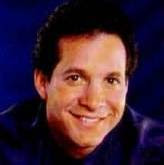The London captured in Director Lone Scherfig’s early 1960’s suburban portrait of Twickenham isn’t yet swinging, but it’s a tidily-organized, austere destination that is characterized as cold, damp, gray and dimly lit where diegetic echoes of French, Jazz and American Pop music emanate from wax and cigarette smoke floats amongst the musical notes. A cleverly designed title sequence (one in which Saul Bass would probably be proud of conceiving) moves in rhythm - - and in shapes and scribbles of ‘white chalk’ - - to Floyd Cramer's #1 hit (in the U.K., 1961) "On The Rebound" (a figurative title indicative of sexual relations yet to come) while the canvas of the movie screen is at once denoted to a chalkboard signifying: Class is in session.
Jenny (Carey Mulligan), is at the top of her class with marks destined to promise her a seat at the University of Oxford. At sixteen, she gracefully exudes a beauty and maturity not typical of her classmates with one foot in adolescence and the other in adulthood. A storm is afoot and changes are brewing in Jenny … and London. While leaving her literal classroom on foot during a rather torrential rainstorm, prosperity (twice Jenny’s senior) rounds the corner in the guise of David (Peter Sarsgaard) who welcomes Jenny into the comfortable confines of his Bristol luxury automobile. I was reminded of The Police’s “Don’t Stand So Close To Me”:
Wet bus stop, she’s waiting
His car is warm and dry
Like any naïve schoolgirl of the ‘60’s not accustomed to contemporary Stranger danger and with the added element of wet discomfort from the rain, Jenny eventually accepts his invitation after some clever wordplay. Additionally, she bargains for the temporary shelter of her cello and the objet d’affection for David as he is a lover of classical music and all its instruments. Incidentally, Jenny resembles the curvaceous shape and size of her negotiating chip and is undoubtedly an instrument with which he himself would like to play.
Music takes on an especially powerful significance in the film (as is typical in Screenwriter Nick Hornby’s work e.g. HIGH FIDELITY and ABOUT A BOY) with tracks that mirror Jenny and David’s playlist of their relationship including: “You've Got Me Wrapped Around Your Little Finger”; “Comin’ Home Baby”; “Teen Scene”; “Tell The Truth”; “Sweet Nothin’s”; “Since I Fell For You” and “Your Heart Is As Black As Night”. Musical cues subtly match moments of characters’ dialogue and actions for instance when David hatches a plot to lure Jenny to Paris on a Friday while Beth Rowley smokingly sings “A Sunday Kind Of Love” at the exact moment she belts out she doesn’t want a “Thursday, Friday or Saturday” kind of love. And when David and Jenny wander through a crowded casino club and Ray Charles’ backup singers cry out of the jukebox (for David no less) to ‘tell the truth’.
David reveals he is a man of the world, an accomplished jetsetter and bachelor or rather, a rebel whose suave veneer would equate him with Ian Fleming’s James Bond and it’s to David whom Jenny wishes to be bonded. Eventually, the two ‘life’ enthusiasts attend a classical music concert with David’s friends and ‘business’ colleagues, Danny (Dominic Cooper) and Helen (Rosamund Pike) who further take Jenny down the rabbit hole of art auctions, martini lunches, chain-smoking and sophistication.
Even Jenny’s traditionalist parents, Jack (Alfred Molina) and Marjorie (Cara Seymour) living in their impeccably straight-laced surroundings (which seem to be lacking in substantial lighting fixtures) are no match for David’s quick wit, incomparable charm and when all else fails, social lubrication. Equally (if not more so) focused on Jenny’s achievement of higher education and place in the world, Jack is the clichéd stick-in-the-mud (who’s unjustifiably racist, most particularly to Jews) father with standards of excellence and frugality he wishes to impress upon his daughter e.g. when he goes so far as to check the front lawn to see if their family owns a tree upon which money grows. David is the attractive landscaper (ala Rock Hudson, ALL THAT HEAVEN ALLOWS) who will chop down that trope.
With clever playacting and promises that he is able to introduce Jenny to Clive “C.S.” Lewis, the accomplished author, Christian apologist and former member of the Oxford faculty, David has Jack and Marjorie eating out of his hands which makes one wonder if he’s done this before (more on this later). Fallen under David’s seductive spell, Jenny’s parents are just as smitten as she is and allow him safe passage through their parental insecurities to Oxford and later, Paris. She trades in her gray school uniform for more colorful frocks and begins to sacrifice good grades for an education in worldly wisdom under the tutelage of David.
Everything seems bright and promising for Jenny until the rug of disillusionment is pulled out from under her when she discovers that David and Danny are actually self-employed sneak thieves who steal fine goods that (in their estimation) their owners cannot appreciate. To stay with David and condone such behavior suggestive of Bonnie Parker and Clyde Barrow would go against everything Jenny has learned in her parent’s upbringing. She has a choice and for sake of argument (and the story), she decides to stay with David. No matter how difficult a relationship with David might be, to leave class (in mid-semester) would assuredly produce a failing mark.
Once in Paris, their relationship seems sealed as they reveal their respective sexual prowess to one another: that of a virgin on her 17th birthday and an experienced older man who is just as shy as she is. An uncomfortable silence is punctuated by sounds of airplane take-offs and landings at an airport nearby while images of framed jumbo jets don the walls in their Parisian accommodations. The steps that have been taken up until this moment (despite the criminal behavior) has been carefully plotted and organized and through the act of sexual surrender on both their parts, there is nowhere for the happy couple to go but up as their relationship literally takes off and Jenny’s chances at Oxford are left to crumble on the runway.
Jenny and David return to London and break the news of their engagement to her parents to their devout satisfaction. Jack’s initial hope for his daughter to attend university is further shattered as he reveals that once his daughter found a capable husband to share a life with, that nothing else really matters. And for extra credit, Jenny seals the deal by standing off against her headmistress (Emma Thompson) and dropping out of school much to her favorite teacher Miss Stubbs’ (Olivia Williams) dismay. She is now free to lounge around Danny’s palatial residence, eat fine food, libate on exotic cocktails and swap fine clothes with Helen … A+.
David treats his new in-laws to a dinner out on the town, but reveals two flaws in his coordination of logistics: his Bristol requires a fresh tank of diesel which he didn’t plan for and he should’ve scraped the automobile for clues if he was going to leave it alone to pay the station attendant. Curiosity may have killed the cat, but it most certainly also caught the cad. After searching through the glove compartment of David’s car, Jenny not only finds an empty pack of Bachelor-brand cigarettes (fitting name since David and Jenny are about to marry and he’s no longer a Bachelor) but freshly-opened envelopes addressed to David and his wife’s home. Controlling her rage, Jenny orders David to take her home - - the proverbial honeymoon is over.
David drops off his in-laws (soon to be out-laws), heads for the security of the bottle and for once is unable to consult his charm in conversing with them. With Jack, Marjorie and Jenny waiting for David to arrive with his apologia inside their home (now in absolute pitch darkness), David reverses his car in the middle of the street which glares his headlights into their living room (the brightest light that’s filled their home the entire film) and they’re able to not only see through his veil of deception, but Jenny learns her lesson and knows what she must do: return to school to complete her A-levels after which she is accepted into Oxford.
Throughout Jenny’s learning process, David brought with him a color (to oppose the dull gray and red brick consistency of Jenny’s neighborhood) and excitement (visual aids and class trips) that wakes up her conservative family to the possibilities of a new brand of post-war London which would soon welcome the Beatles and really swing. Off screen departs David and his Bristol and in its place would soon appear Cadillac automobiles.
Jenny’s (and London’s) maturation process leads her through a coming-of-age odyssey at once fascinated by the pleasure principle - - with a voracious appetite for culture, cinema, fine cuisine and classical/popular music - - who learns to accept her current state of reality and return to complete her proper education. By obeying this reality principle and reserving the lessons (fantasies) she had learned from David, upon being asked to travel to Paris with one of her similarly-aged Oxford peers, Jenny expresses great desire as if she’d never been - - which appears as if she has a lot to teach him and each other … Class dismissed.







